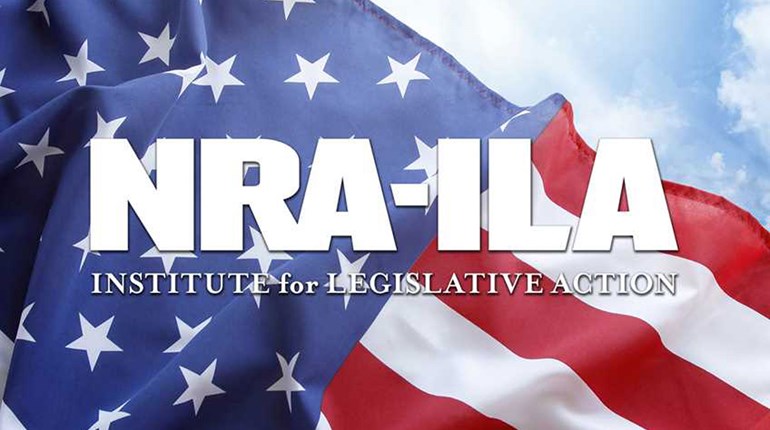
The Government Accountability Office (GAO) recently caught the Bureau of Alcohol, Tobacco, Firearms and Explosives (ATF) outside of the law. A GAO report titled “ATF Did Not Always Comply with the Appropriations Act Restriction and Should Better Adhere to Its Policies” slams the ATF for keeping information about gun owners and purchasers it is not allowed by federal law to have.
The GAO determined that, out of four data systems it analyzed, two complied with the laws and regulations, but two did not.
The GAO report says, “To carry out its criminal and regulatory enforcement responsibilities, the Bureau of Alcohol, Tobacco, Firearms and Explosives (ATF) has 25 firearms-related data systems, 16 of which contain retail firearms purchaser information from a federal firearms licensee (FFL)—such as firearms importers and retailers. GAO selected 4 systems for review that are used in the firearms tracing process …” For example, GAO investigators determined that the “ATF inconsistently adheres to its policy when deleting [multiple sales] records. Specifically, until May 2016, [its multiple sales records] contained over 10,000 names that were not consistently deleted within the required 2 years.”
The GAO does say that the “ATF addressed these compliance issues during the course of GAO’s review.”
To put this in context, it is worth noting that the ATF is currently overwhelmed with the records it receives from out-of-business gun stores. After a visit to the ATF’s National Tracing Center in West Virginia earlier this year, I wrote about the millions of records currently burying the ATF. The ATF is so inundated they are asking journalists to come in and tell the world about their dilemma.
The GAO determined that, out of four (ATF) data systems it analyzed, two complied with the laws and regulations, but two did not.Given this plight, perhaps it is understandable that the ATF is having trouble complying with the laws and regulations pertaining to the records of gun sales. But there is clearly a political side to the ATF’s media outreach.
I toured the ATF National Tracing Center with a reporter from Mother Jones, a left-leaning publication that often attacks the NRA. ATF program manager Neil W. Troppman gave us the tour and explained the ATF’s recordkeeping dilemma. As he did, he made it clear that he thinks the ATF needs the ability to create a database of gun owners.
When we stopped in front of a display of damaged records placed in front of office cubicles, Troppman pointed at the records and said, “These are partially shredded and those are almost washed out from a flood. Maybe it was on purpose.”
Troppman next took us to a room that housed an unfathomable amount of gun-sale records preserved on microfilm. These records are being converted into digital documents, but he couldn’t estimate how many years that might take. We then saw a room where technicians were using old microfilm machines to search these records. I hadn’t seen one of those machines since the mid-1990s.
Troppman said, “We’re creating a database we can search by gun store and time period so that if a gun is confiscated at a crime scene we can help the investigating officer determine when it was first sold and who bought the gun.”The ATF is so inundated they are asking journalists to come in and tell the world about their dilemma.
Makes sense, but as we went Troppman made it very clear he was unhappy with what it takes the ATF to run down the identity of the person who originally purchased a particular gun. Troppman even said, “I was watching one of those crime dramas recently—‘NCIS’ or something—when it showed a cop using his smartphone to look up the history of a criminal’s gun. Then all this data appeared on his phone. When it was sold, who bought it … everything. People think we can do that now, but we can’t.”
Earlier this week on a “CBS Sunday Morning” feature titled “ATF Under The Gun,” ATF Deputy Director Thomas Brandon expressed his wish that the agency have a national gun registry of all firearms to replace the current system of searching paper records from licensed dealers: “Would it be efficient and effective? Absolutely. Would the taxpayers benefit with public safety? Absolutely. Are we allowed to do it? No,” Brandon said.
Given the ATF’s inability to deal with even the records from out-of-business gun stores and manufacturers, I can’t see how they could possibly manage such a thing in a nation where over 100 million people legally own more than 350 million guns. That is, of course, if we even wanted them to try to infringe upon the Second Amendment in such an invasive way.
Also, there is the pesky fact that most criminals get guns by stealing them or buying them from those who, in one way or another, broke the law to get the gun in the first place. For that reason, even the best recordkeeping won’t allow the authorities to trace criminals’ guns.

































